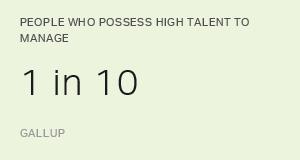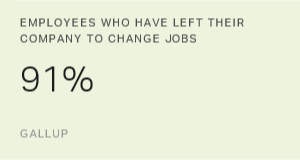Story Highlights
- Leadership teams struggle to understand and invest in culture correctly
- Talented people want to work for organizations with strong cultures
- Ask the right questions to know if your culture is hurting your business
Leaders often disagree about the value of organizational culture, even within the same executive team. Some get really excited about culture -- to the point of distraction. Other leaders prefer the "nuts and bolts" of business operation and simply don't know how to think about culture.
Both extremes are dangerous. A culture-obsessed leader may be wasting money on shiny objects that don't matter. A culture-agnostic leader may be blind to factors that influence bottom-line outcomes such as productivity and sales. Either way, leadership teams struggle to understand, align and invest in culture appropriately. Is it everything? Nothing? Somewhere in between?
There's a simple principle that addresses both extremes: Your culture doesn't matter if it's not adding measurable value to your organization.
A culture that doesn't just exist but that wins for your organization is one you must intentionally create. Strong organizations understand their unique culture, use multiple methods to continuously monitor the state of their culture and align the culture they want with business performance priorities -- like attracting top talent.
Why Culture Wins Talent
Great cultures win the best talent for two reasons. First, strong cultures create employees who are brand ambassadors.
Although culture can often feel vague or "soft," the logic is pretty straightforward, based on Gallup research:
- Employees with a strong connection to their organization's culture show higher levels of engagement.
- Engaged employees are more likely to refer friends to their organization.
- And 71% of workers say that they use referrals from current employees of an organization to learn about job opportunities.
When you have a winning culture, employees can speak genuinely and convincingly about why your organization is a great place to work. And that naturally attracts people who are seeking exceptional workplaces.
The second reason culture wins talent is that talented people want to work for organizations with strong cultures. They are looking for workplaces that have a brand, mission and values that resonate with them personally -- and that develop and invest in their talents.
In fact, when job candidates ask questions about mission and purpose, it can be a strong indicator of high talent.
In our experience with talent selection, less-talented candidates ask more transactional questions. They focus more on things like pay, benefits and days off.
In contrast, high-talent candidates ask higher-level questions like "Who will my manager be?" "How will I learn and grow?" "What does this company stand for?"
These are the employees who will generate innovation, growth and productivity in your organization.
A Question of Culture: Do We Get the Best Candidates?
Simply put, when the best people want to work for you, you have a winning culture. To evaluate this aspect of your culture, start by asking these two questions:
- What percentage of the job offers you make to highly talented candidates get accepted?
- When talented candidates say yes, what percentage mention your identity, culture or brand as a deciding factor?
These are two questions that every organization should be tracking continuously. Fundamentally, they measure your culture's ability to attract high-talent individuals to your organization.
Employees may not use the word "culture" explicitly, but they might say things like:
- "I wanted to work for a smaller company where my input made a difference."
- "I wanted to work somewhere that would help me achieve my career goals."
- "I love how this organization treats its customers. That's the kind of place I wanted to be."
World-class organizations have frequent conversations with their best employees on these topics -- and then build their recruitment strategy around that feedback to attract similar stars. They also seek out other kinds of feedback, like focus groups or checking Glassdoor reviews for culture language, to stay well-informed.
In addition, HR teams need to have criteria for sorting and ranking hires for fit. Keep track of the people you really wanted for your team. If you make 100 offers and the top 20 candidates do not accept your offer, that's a problem. What's going on with those top 20? That's the first step toward a genuine selection strategy that will create a culture focused on performance.
According to our analysis, when companies select the top 20% of candidates based on a scientific assessment, they realize:
- 41% less absenteeism
- 70% fewer safety incidents
- 59% less turnover
- 10% higher customer metrics
- 17% higher productivity
- 21% higher profitability
Your culture may be the reason you aren't getting your top 20% of candidates. And until you start asking the right questions and analyzing your feedback, you won't know if your culture is helping or hurting your bottom line.
Take steps today to start understanding and building a culture that attracts top talent:
- Download our report on how to build a culture that drives performance.
- Learn how a strengths-based workplace can help you get the best out of your people.
- Use Gallup-approved surveys to help you understand why star employees stay with or leave your company.


